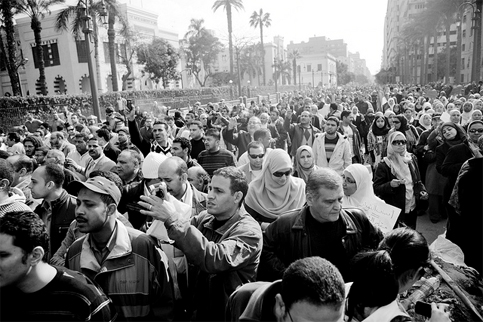emergency Montreal protest for solidarity for struggle for democracy in Egypt.

- Saturday, Nov. 19, 16h
Egyptian Consulate
1000 rue De La Gauchetiere O.
(metro Bonaventure)
Montreal, Quebec
emergency Montreal protest for solidarity for struggle for democracy in Egypt.



Photograph taken on Tuesday, August 2nd just after morning prayer via journalist Anjali Kamat in Cairo, Egypt, protest opposing post-revolution rule via Supreme Council of Armed Forces (SCAF) in Egypt.
Photos taken in the hours after the Egyptian military attack on Tahrir Square protest camp calling for an end to military rule and for an end to the ongoing imprisonment of protesters after the successful revolution that overthrew Hosni Mubarak.
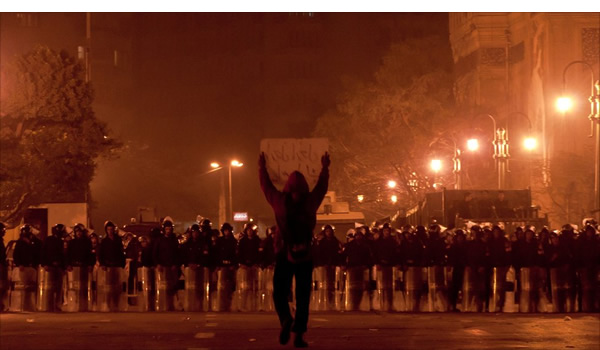
No matter how it unfolds, the Egyptian revolution will go down in the history books as a defining moment in the 21st century. Millions of Egyptians brought down one of the world’s most repressive regimes, that of the U.S.-backed Hosni Mubarak, in just 18 days. Their bravery, perseverance, and tactfulness in the face of the regime’s brutal crackdown not only triggered uprisings across the Arab world but inspired and influenced protests against government austerity in the U.S., Spain, Portugal, and Greece. Despite the fact that it is only a few months old, it’s important to begin piecing together a people’s history of the revolution to convey what happened and how it happened so that the lessons from this critical struggle can be disseminated.
(…اكثر)

As hundreds-of-thousands of Egyptians took to the streets in opposition to the US-backed dictatorship of Hosni Mubarak solidarity protests were sparked across the world, including in occupied Palestine. In Bil’in village in the West Bank local residents staged a Egypt solidarity protests as part of their weekly demonstrations in opposition to the Israeli apartheid wall which cuts through the agricultural lands of the village.
workshop in En. with Fr. whisper translation, for the Montreal Anarchist Bookfair
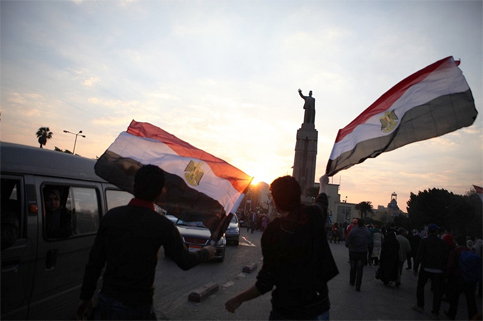
photo: mass demonstration, Tahrir Square, Cairo, Egypt, January 25th, via Arabawy
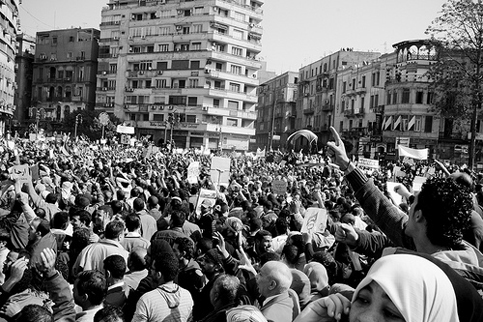
A critical discussion on recent uprisings across North Africa and the Middle East
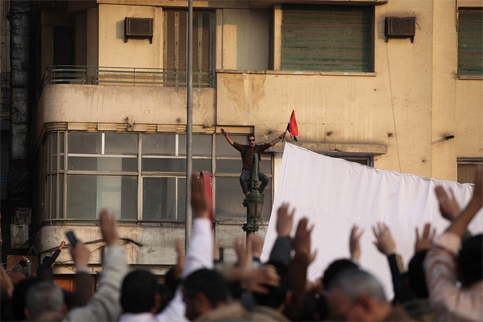
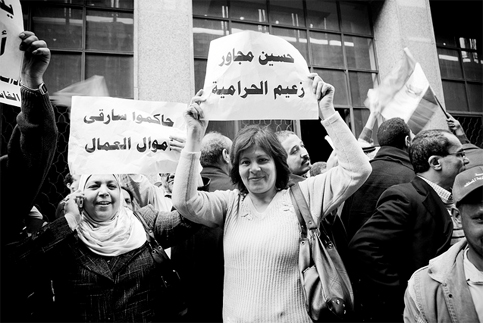
Photo Protest at headquarters of state-backed Egyptian Federation of Trade Unions.
Since yesterday, and actually earlier, middle-class activists have been urging Egyptians to suspend the protests and return to work, in the name of patriotism, singing some of the most ridiculous lullabies about “let’s build new Egypt,” “let’s work harder than even before,” etc. In case you didn’t know, actually Egyptians are among the hardest working people in the globe already.
Those activists want us to trust Mubarak’s generals with the transition to democracy — the same junta that has provided the backbone of his dictatorship over the past 30 years. And while I believe the Supreme Council of the Armed Forces, who receive $1.3 billion annually from the US, will eventually engineer the transition to a “civilian” government, I have no doubt it will be a government that will guarantee the continuation of a system that will never touch the army’s privileges, keep the armed forces as the institution that will have the final say in politics (as for example in Turkey), guarantee Egypt will continue to follow the US foreign policy, whether it’s the undesired peace with the Apartheid State of Israel, safe passage for the US Navy in the Suez Canal, the continuation of the Gaza siege, or exports of natural gas to Israel at subsidized rates. A civilian government is not about cabinet members who do not wear military uniforms. A civilian government means a government that fully represents the Egyptian people’s demands and desires without any intervention from the brass. And I see this as hard to be allowed, let alone accomplished, by the junta.
